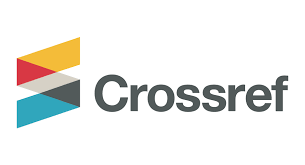Arah Politik Hukum dalam Pembangunan Sistem Hukum Nasional Menurut Undang-Undang RPJPN 2005-2025
 Abstrak views: 452
,
Abstrak views: 452
,
 PDF (English) downloads: 424
PDF (English) downloads: 424
Abstrak
Every country has a political law that acts as a basic policy for state administrators to determine the direction and content of the law to be formed. State administrators in carrying out their duties and responsibilities certainly have a legal political system like Indonesia which adheres to a democratic system. This is what then needs to be studied more deeply regarding the direction of Indonesian legal politics and this will not be separated from the historical context of how the direction of national legal policy is. Not only that, this paper will also examine how the implementation of the legal political direction is made in making a policy. The method used in this paper is normative and empirical juridical. The results of the research show that the direction of legal politics in the development of the Indonesian legal system is contained in the 2005-2025 RPJPN Law. Meanwhile, in practice, there are still several legal products issued that are not in line with the 2005-2025 RPJPN Law, such as the revision of the KPK Law (UU No. 9 of 2019), the Minerba Law and also the Job Creation Law. From some of these legal products, it can be said that the direction of legal politics in terms of implementation is still not optimal. Because the policies carried out by the government have not been able to achieve the expected democracy.
##plugins.generic.usageStats.downloads##
Referensi
Frenki (Staf Pengajar Pada Fakultas Syariah IAIN Raden Intan Lampung). “Politik Hukum Dan Perannya Dalam Pembangunan Hukum Di Indonesia Pasca Reformasi”.
H. Abdul Manan. Politik Hukum (Studi Perbandingan dalam Praktik Ketatanegaraan Islam dan Sistem Hukum Barat). Jakarta: Prenadamedia Group, 2016.
Lusiana M. Tijow. “Arah Pembangunan Hukum Nasional Dalam Rencana Pembangunan Jangka Panjang (RPJP) Indonesia”. Jurnal: Law Enforcement, Vol. 4, No. 1, 2017.
Mahfud MD. Politik Hukum di Indonesia. Jakarta: Rajawali Press, 2009.
Nadir & Win Yuli Wardani. “Politik Hukum Dalam Pembangunan Hukum Nasional Indonesia; Arah dan Substansinya”. Jurnal: Yustitia, Vol. 19, No.1, 2018.
Nasution, Mirza. Politik Hukum Dalam Sistem Ketatanegaraan Indonesia. Jakarta: Puspantara, 2015.
Nurbaningsih, Eny. Evaluasi Hukum Dan Proyeksi Pembangunan Hukum Nasional Dalam Rangka Penyusunan Dokumen Pembangunan Hukum Nasional (DPHN).
Peter Mahmud Marzuki. Metode Penelitian Hukum. Jakarta: Prenadamedia Group, 2014.
Pokja Penyusunan DPHN 2016. Dokumen Pembangunan Hukum Nasional Tahun 2016. Jakarta: Badan Pembinaan Hukum Nasional Kementerian Hukum dan HAM, 2016.
Zaman, Nurus. Politik Hukum Dalam Negara Kesatuan Upaya Menciptakan Harmonisasi Pembangunan Hukum. Jakarta: Literasi Nusantara, 2020.
Publishing your paper with As-Shahifah : Journal of Constitutional Law and Governance means that the author or authors retain the copyright in the paper. As-Shahifah granted an exclusive non commercial reuse license by the author(s), but the author(s) are able to put the paper onto a website, distribute it to colleagues, give it to students, use it in your thesis etc, so long as the use is not directed at commercial advantage or toward private monetary gain. The author(s) can reuse the figures and tables and other information contained in their paper published by As-Shahifah in future papers or work without having to ask anyone for permission, provided that the figures, tables or other information that is included in the new paper or work properly references the published paper as the source of the figures, tables or other information, and the new paper or work is not direct at private monetary gain or commercial advantage.
As-Shahifah journal provides immediate open access to its content on the principle that making research freely available to the public supports a greater global exchange of knowledge. This journal is licensed under a Creative Commons Attribution-ShareAlike 4.0.This license lets others remix, tweak, and build upon your work non-commercially, and although their new works must also acknowledge & be non-commercial, they don’t have to license their derivative works on the same terms.
As-Shahifah journal Open Access articles are distributed under this Creative Commons Attribution-ShareAlike 4.0 International License (CC BY-SA). Articles can be read and shared for noncommercial purposes under the following conditions:
- BY: Attribution must be given to the original source (Attribution)
- SA: If you remix, transform, or build upon the material, you must distribute your contributions under the same license as the original.









